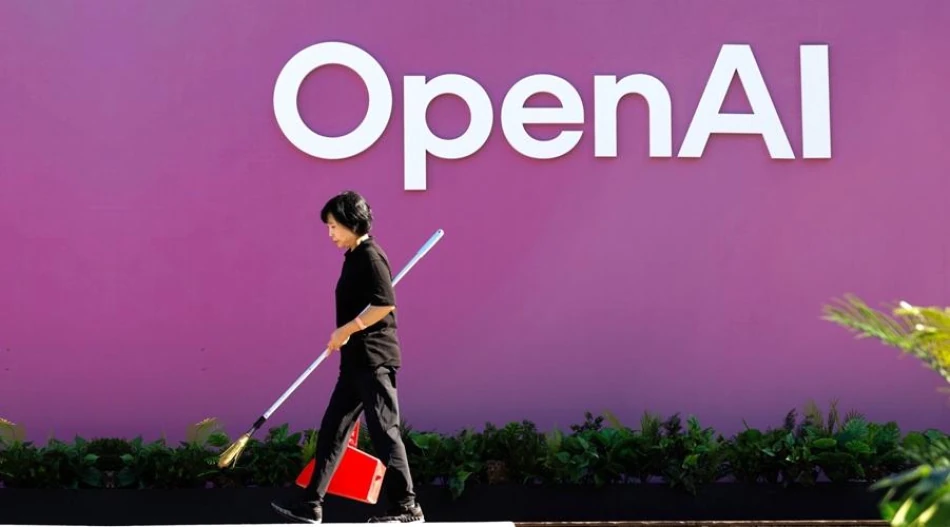
OpenAI Restructures Towards Profitable Business Model
Microsoft and OpenAI Strike New Deal as AI Giant Eyes For-Profit Transformation
Microsoft and OpenAI have signed a non-binding agreement that clears the path for OpenAI's ambitious restructuring into a for-profit company, marking a pivotal shift in one of tech's most consequential partnerships. The deal represents a strategic recalibration as OpenAI seeks to raise capital under a more conventional corporate structure ahead of a potential public offering, while Microsoft aims to preserve its privileged access to cutting-edge AI technology.
The Stakes Behind the Restructuring
OpenAI's transformation from a nonprofit research organization into a profit-driven entity reflects the staggering financial demands of AI development. With revenues now reaching billions of dollars, the company requires massive capital infusions to compete in the global AI race against tech giants like Google, Amazon, and emerging players from China.
Under the proposed restructuring, OpenAI's nonprofit arm would receive over $100 billion — approximately 20% of the company's targeted $500 billion private market valuation. This windfall would instantly make it one of the world's most well-funded nonprofit organizations, according to a memo from current nonprofit board chair Bret Taylor.
Breaking Free from Restrictive Partnerships
The current agreement has constrained OpenAI's growth potential. Microsoft holds exclusive rights to distribute OpenAI's software tools through its Azure cloud platform and enjoys preferential access to the startup's technologies. As OpenAI's ambitions expand, these restrictions have become increasingly problematic for scaling operations and diversifying revenue streams.
OpenAI now seeks partnerships with additional cloud service providers to expand sales reach and secure the computing capacity necessary to meet surging demand for AI services. This mirrors strategies employed by other AI companies that have avoided over-dependence on single cloud providers.
Microsoft's Strategic Concerns
Microsoft's $11 billion investment in OpenAI since 2019 has been transformative for both companies. The partnership enabled Microsoft to integrate ChatGPT and other AI tools into its Office suite, Azure services, and Bing search engine, giving it a crucial edge over competitors like Google.
However, Microsoft faces a critical vulnerability: under current terms, the partnership would terminate if OpenAI achieves artificial general intelligence (AGI) — AI that matches or exceeds human cognitive abilities. This "AGI clause" was designed to prevent any single company from controlling superintelligent AI, but it creates uncertainty for Microsoft's long-term AI strategy.
Preserving Access to Revolutionary Technology
The new agreement appears designed to address this concern, though neither company disclosed whether Microsoft retains exclusive access to OpenAI's latest models and technologies. Given the rapid pace of AI advancement, securing continued access to frontier AI capabilities is essential for Microsoft's competitive positioning.
Market Implications and Industry Precedent
OpenAI's restructuring follows a pattern seen across the AI industry, where research-focused organizations evolve into commercial enterprises to access capital markets. Anthropic, another prominent AI company, has raised billions from investors including Google and Amazon while maintaining its focus on AI safety research.
The $500 billion valuation OpenAI is targeting would make it one of the world's most valuable companies, surpassing established tech giants and reflecting investor confidence in AI's transformative potential. This valuation premium demonstrates how capital markets are pricing in the expectation that AI will reshape entire industries over the coming decade.
Regulatory and Competitive Dynamics
The Microsoft-OpenAI partnership has attracted scrutiny from regulators concerned about concentration in the AI market. By allowing OpenAI greater independence while maintaining strategic ties, the new arrangement may help address some regulatory concerns while preserving the benefits of their collaboration.
This restructuring also positions OpenAI to compete more effectively with integrated tech giants that combine AI research, cloud infrastructure, and consumer applications. Companies like Google and Amazon have natural advantages through their vast computing resources and diverse revenue streams, making independent funding crucial for OpenAI's long-term competitiveness.
The success of this partnership evolution could establish a template for other AI collaborations, balancing the need for massive capital investment with concerns about market concentration and technological control. As AI capabilities continue advancing toward human-level performance, these structural decisions will shape which companies and nations lead the next phase of technological development.
Most Viewed News

 Omar Rahman
Omar Rahman






